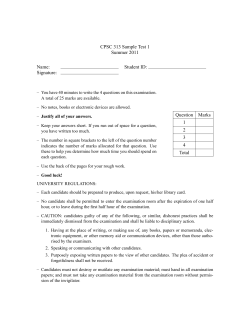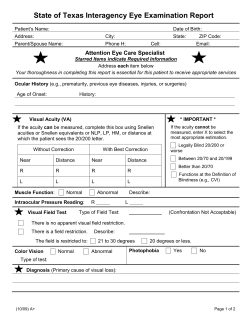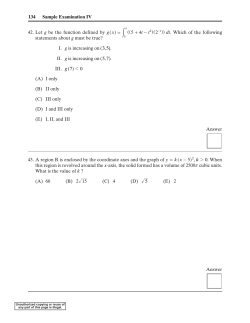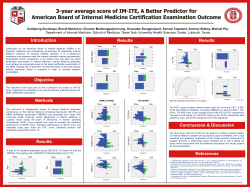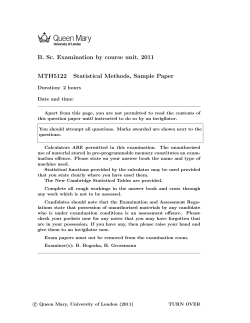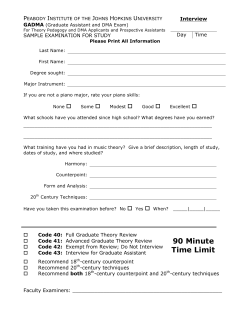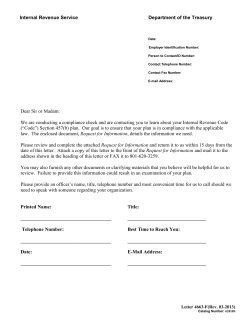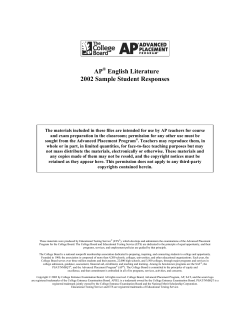
MANUAL FOR EXAM INVIGILATORS
MANUAL FOR EXAM INVIGILATORS Contents 1. 2. 3. 4. THE PURPOSE OF INVIGILATION ........................................................................ 2 DISABILITY-RELATED EXAM ARRANGEMENTS .............................................. 2 BEFORE THE EXAM ................................................................................................. 2 EXAM ROOM SET UP............................................................................................... 2 4.1 Invigilators Arrival ............................................................................................... 2 4.2 Examination Papers ........................................................................................... 3 4.2.1 Missing question papers ................................................................................ 3 4.3 Desk Numbers..................................................................................................... 3 4.4 Other Preparations ............................................................................................. 3 5. ROUTINE CONDUCT OF EXAMINATIONS .......................................................... 3 5.1 Admission of Candidates to Examination Room ........................................... 3 5.2.1 Use of dictionaries ............................................................................................ 3 5.2.2 Use of calculators/mobile devices ............................................................... 3 5.3 Late arrival of candidate ................................................................................ 4 5.4 Start of Examination ........................................................................................... 4 5.5 During the Examination ..................................................................................... 4 5.6 Candidates Requiring to Leave the Examination Venue ............................. 5 5.7 What to do if cheating is suspected ................................................................. 5 5.8 30 Minute Warning Before the End of the Exam ........................................... 5 5.9 End of the Examination...................................................................................... 5 6. PROCESSING OF EXAMINATION PAPERS ....................................................... 6 6.1 Collation of Papers ............................................................................................. 6 6.2a Collection of Papers by the School .................................................................. 6 6.2b Delivery of Sealed Envelopes to Security Control Room for exams at Kings Campus ................................................................................................................. 6 6.3 Examination Security ......................................................................................... 6 7. RESPONSIBILITIES OF SENIOR INVIGILATORS AND INVIGILATORS ....... 6 8. USEFUL CONTACTS ................................................................................................ 7 Updated: 13/01/2014 13:54 1 1. THE PURPOSE OF INVIGILATION This manual is intended to provide guidance for all invigilators, but in particular new invigilators who may not be familiar with the University’s exam arrangements. Invigilators are appointed by both Schools and Registry. The main purpose of invigilation is to regulate the exam environment, so it is as quiet, comfortable and as relaxed as possible, so students can do their best in answering the questions asked of them. Invigilators are required to ensure that the regulations associated with exams are acted upon; that the instructions relating to the exam protocol are explained clearly and fully to the students; and that illegal activity is discouraged by the use of a system that makes it obvious and likely that any cheating will be detected. If cheating is detected, then it is the responsibility of the invigilator to deal with the situation as quickly, effectively and fully as possible, always acting so as to minimise any impact on the other students present. Judgement as to whether cheating has actually taken place will follow the exam and will depend on the evidence collected at the time, so invigilators must be scrupulous in the gathering of this evidence. 2. DISABILITY-RELATED EXAM ARRANGEMENTS The Central Timetabling Team in Registry and Schools are responsible for organising disability-related exam arrangements including: Provision of a computer Extra time Scribe/reader Private exam room Disability-related exam arrangements are managed on a central disability database. Registry provide invigilators for the main extra time rooms and the extra time computer rooms. 3. BEFORE THE EXAM The Head of School is responsible for ensuring there are a sufficient number of invigilators for each exam, usually two. For exams with over a 100 candidates there may be three invigilators allocated. If you are invigilating for your School check with your School Office which exams you are expected to invigilate, noting dates, times and location. The School Office will advise you if you are invigilating for a student with disability-related exam requirements. Find out if you are expected to take the exam scripts to the venue and if the completed scripts should be returned there or to Security (9A Dunbar Street) for exams at Kings Campus. Registry provides their invigilators with a rota and candidates list(s) the week prior to the start of the exams. 4. EXAM ROOM SET UP 4.1 Invigilators Arrival Invigilators should ensure they are present in the Examination Room in plenty of time to ensure that all arrangements are in place, and so should plan to arrive 30 minutes before the start of the examination. Senior Invigilators will have been nominated by Registry for the main exam venues only and have specific responsibilities which are detailed in Section 7 of this manual. The Senior Invigilator will usually be the invigilator for the exam with the largest number of candidates in the room. In disability-related exam venues there is no Senior Invigilator appointed. Updated: 13/01/2014 13:54 2 4.2 Examination Papers There can be more than one exam taking place in an exam room. Invigilators should ensure the examination papers for the various examinations have arrived from the Schools. 4.2.1 Missing question papers For any papers that fail to arrive, contact the School Office to chase up the paper. Even if the exam papers have not arrived on time, allow the candidates to enter the venue and be seated in their allocated seats in the examination room. Ask candidates to sit quietly and assure them that extra time will be given at the end of the examination. Start the rest of the students’ examinations being held in the exam hall (see below). When the papers arrive start the examination for the remaining students. 4.3 Desk Numbers In the main exam venues, the porters will have laid out desk numbers on all the desks in the exam venue, and allocated a number of seats to each exam. Check which desks have been allocated to your exam. Registry provides their invigilators with desk numbers to use if required. 4.4 Other Preparations Invigilators should become familiar with the examination venue and ensure the room has adequate seating, lighting, ventilation and a working clock visible to all candidates. Particular attention should be given to the location of fire exits, toilet facilities and spare stationery. If you don’t have your mobile phone with you, find the location of the nearest telephone outside the exam venue. Take with you a list of useful telephone numbers including your School Office. Identify an area of the room, usually at the front, for students to leave their bags and other belongings. 5. ROUTINE CONDUCT OF EXAMINATIONS 5.1 Admission of Candidates to Examination Room Candidates should be allowed to enter the room prior to commencement of the examination to allow sufficient time for them to settle before the start time. In large venues, porters or other staff will be able to advise you of how long this will take. An announcement should be made as students enter the hall, to inform them where to leave bags and other belongings; that mobile phones and devices should be switched off and left in their bags; which part of the exam hall to find a seat; and that they should put their ID card on the corner of the desk. Students are not permitted to use their mobile phones as a clock. 5.2 Dictionaries and Calculators 5.2.1 Use of dictionaries Candidates whose first language is not English may refer to English/native tongue dictionaries, when permitted by their Schools to do so. Electronic dictionaries are not permitted in the examination venue. Invigilators are entitled to request inspection of dictionaries prior to the examination, thumbing through them to check that there is no extra written material present. 5.2.2 Use of calculators/mobile devices Examination papers shall either prohibit calculators or allow those as specified on the exam papers. Mobile phones and devices cannot be used as a calculator. Updated: 13/01/2014 13:54 3 Calculators should be hand-held, quiet, self-powered and portable and not capable of connection to any external source of information. Mobile phones and devices are not permitted to be used as calculators. When there is any restriction on the type and use of calculators permitted, examination papers will state this. 5.3 Late arrival of candidate Candidates are not permitted to enter the examination more than 30 minutes after the start. Candidates are not to be given extra time for late arrival. Invigilators of sole candidates are required to wait 30 minutes from the scheduled start of the examination. If the candidate has not arrived, the invigilator may then leave. 5.4 Start of Examination The Senior Invigilator should generally be the person who makes the announcements. The standard announcement for the start of exams is below but can be tailored for individual circumstances (e.g. disability-related exam venues where there are many different exams in one room): Good morning/afternoon. The examinations for _____________ are being held in this room. Make certain that you have the correct examination paper. Please read the instructions for your exam carefully and follow these fully. Please raise your hand if you require attention at any time during the examination. Would you please place your identity card on the top right hand corner of your desk? You are not permitted to leave the examination in the first or last 30 minutes. When your time allowance is up, please leave your examination booklets and question papers on your desk and leave quietly. The time is now _____ and this is the start of the exam period. For exams in extra time venues, ensure students are aware of their extra time allowance. 5.5 During the Examination Invigilators should: Remain vigilant at all times. Where possible at least one invigilator should be present at the back of the examination room. Periodically patrol the room, taking care not to disturb candidates. Only talk to candidates or to each other when absolutely necessary and then in a quiet manner to avoid disruption. Invigilators are responsible for: Checking student identity cards against the Candidate List during the examination and marking candidates as in attendance at the examination. Any additional candidates should be added to the Candidate List. Any student who cannot display a student identity card should be permitted to take the examination but a note should be put on the examination book that no identity card was displayed and the student should be warned that an identity card must be displayed at all examinations. Ensuring that candidates do not consume any food or drink (except bottled water) in the exam hall/room, other than what may be medically prescribed, e.g. cough lozenges, etc. Ensuring that there is no communication, either spoken or written, between the candidates during the period of the examination. Ensuring that the correct examination stationery is available and distributing refill books to candidates as required. Taking appropriate steps to curtail activities in the environs of the examination hall, which they consider detrimental to the performance of candidates. Invigilators should not eat, read a book/newspaper, do any of their own work, use mobile phones or other electrical equipment during the examination. Updated: 13/01/2014 13:54 4 5.6 Candidates Requiring to Leave the Examination Venue If possible, one invigilator should accompany the candidate out of the venue, as far as it is appropriate to do so. The invigilator should annotate the candidate’s script with the time of the candidate’s departure and re-entry, at the end of what is written. The candidate must not leave the venue with any examination scripts. You cannot prevent a candidate going to use the toilet, if they wish to do so, bearing in mind that some medical conditions may make this necessary. Candidates cannot leave the exam venue in the last 30 minutes of the exam, however, invigilators should exercise some discretion if the student requires a bathroom break. 5.7 What to do if cheating is suspected If an invigilator has reason to suspect that cheating has occurred, then if at all possible a second invigilator should be immediately involved, so that there is independent corroboration of the circumstances. If cheating involves the use of extra written or electronic material then this should be confiscated, labelled and stored securely in a sealed exam book envelope, with the invigilators signature across the seal. If the student will not give up the material, then a full note should be made explain the circumstances, witnessed if possible. If the cheating involves communication between students, then both should be warned that this is illegal and asked to desist and a full note made about the circumstances. The candidate can be permitted to continue with the examination. If the candidate does not wish to continue with the examination, then they can leave the exam room (but not in the first or last 30 minutes of the examination). As far as possible, no disturbance should be caused to the other students in the exam hall. All evidence, plus a full account of the circumstances and any actions taken, should be passed to the relevant Head of School as soon as possible after the exam finishes. Registry invigilators should report back to the Registry at the end of the last exam in their room, and their account will be forwarded to the relevant Head of School(s). 5.8 30 Minute Warning Before the End of the Exam In the main exam venues, Announcement 2 should be made 30 minutes before the end of th examination: Please note that there are now 30 minutes remaining and so no-one is now permitted to leave the exam hall until the exam is finished. This announcement is not required in disability-related exam venues where students finish at different times. 5.9 End of the Examination At the end of the examination exam scripts will either be collected before the students leave the room, or once the students have left the room. Announcement 3 should be made: Candidates. You must now stop writing. Please ensure you have written your name, ID number and any other details requested, for example question numbers answered, on all your answer booklets and that you have sealed the corner or edge to ensure anonymity. Please remain in your seats and listen to the following instructions on how we propose to collect your examination scripts: Updated: 13/01/2014 13:54 5 Either: To reduce the chances of exam scripts going missing all candidates must remain in their seats until all the scripts in the room have been collected by invigilators. Once they are collected you will be advised that you may leave the exam hall. Or: Examination scripts and, where requested, question papers must remain on your desk for collection. Please leave quietly & collect your bags and then do not start discussing the exam until outside the exam hall. This announcement is not required in disability-related exam venues where students finish at different times. If the candidates are to leave prior to the examination scripts being collected, as in most cases, ensure that no examination booklets or question papers are removed by the candidates, unless permitted to do so. If any examinable material is removed from the exam hall, even in error, it cannot then be submitted for assessment. 6. PROCESSING OF EXAMINATION PAPERS 6.1 Collation of Papers Invigilators should ensure all examination booklets and question papers are collected at the end of the examination and put into separate envelopes for each course code. It is vital that a rigorous checking procedure is used, so as to ensure that every exam script is accounted for and then stored securely. If a student has attended the exam but written nothing, it is important that a clear note is made saying this, so that no ‘missing scripts’ are suspected. Completely blank examination booklets should be collected and stored for re-use. Exam scripts that are to be taken to Security for storage overnight should be sealed in envelopes, taped and signed across the seal. 6.2a Collection of Papers by the School Invigilators should remain at the venue until papers have been collected by a School Representative. Or: 6.2b Delivery of Sealed Envelopes to Security Control Room for exams at Kings Campus Sealed envelopes should be delivered to Security Control Room, 9A Dunbar Street, and signed in. 6.3 Examination Security Invigilators are expected to maintain maximum security in the examination room with respect to examination papers and completed booklets. 7. RESPONSIBILITIES OF SENIOR INVIGILATORS AND INVIGILATORS Below is an extract from the Academic Quality Handbook, Section (www.abdn.ac.uk/registry/quality) detailing the responsibilities of invigilators. 7, Appendix 1 Senior Invigilators are appointed by Registry for main exam venues only. The Senior Invigilator in each venue will have authority over the other Invigilators present, and will be responsible for: Ensuring that all Rules for the Conduct of Examinations are observed. They shall satisfy themselves before the commencement of each examination that proper provision has been made for its conduct. Ensuring that the Examination Question Papers are distributed to the candidates so that the examination may commence promptly. Updated: 13/01/2014 13:54 6 Ensuring that examination areas are clear of all articles not required for Examination purposes, and that an area of the room has been designated for depositing briefcases, bags and other objects. Ensuring that students are asked to display their student identity card on the corner of their examination table. Ensuring that any announcements are made before and after the examination. Announcing the start and end of the examination. Deciding if any of the Invigilators may be released from duty during the examination. If necessary, Invigilators so released may be asked to return to the Examination Hall fifteen minutes before the end of the examination to help collect examination scripts. Invigilators are responsible for: Ensuring that they are present in the Examination Hall to which they have been appointed at least fifteen minutes before the commencement of the examination. If released from duty during the examination by the Senior Invigilator they should be in attendance at least during the first and last fifteen minutes of the examination. Checking student identity cards during the examination and marking candidates as in attendance at the examination on the candidate list. Note: Any student who cannot display a student identity card should be permitted to take the examination but a note should be put on the examination book that no identity card was displayed and the student should be warned that an identity card must be displayed at all examinations. Ensuring that candidates do not consume in the examination hall or room any food or drink (except bottled water) other than what may be medically prescribed, e.g. cough lozenges, etc. Ensuring that there is no smoking in the examination hall or room. Ensuring that there is no communication, either spoken or written, between the candidates during the period of the examination. Ensuring that the correct examination stationery is available, and for distributing refill books to candidates as required. Ensuring the collection of all scripts at the end of the examination period, and for their disposal in accordance with the instructions of the Head of School concerned. Reporting to the Head of the relevant School any infringement of the rules by a candidate and for informing the candidate of this action and that the Head of Department may refer the case to the University Disciplinary Committee. The candidate should be permitted to continue with the examination. Taking into their custody the script of any student requiring to leave the examination hall or room and noting thereon at the end of what is then written, the time of the student's departure and reentry. Taking appropriate steps to curtail activities in the environs of the examination hall which they consider detrimental to the performance of candidates. The rules for candidates can also be found in Section 7 of the Academic Quality Handbook. 8. USEFUL CONTACTS The numbers below may be useful for any queries but School Invigilators should also have a note of the number for their School Office: Security: 01224 273327, 9A Dunbar Street Central Timetabling Team: 01224 273588, Room 22, University Office Estates: 01224 272063, University Office DIT: 01224 273375, Edward Wright University Switchboard: 01224 272000 Updated: 13/01/2014 13:54 7 School Office Contact Information: College Arts and Social Science Life Science and Medicine Physical Science Updated: 13/01/2014 13:54 School Business School Divinity, History & Philosophy Education Building Edward Wright Building 50-52 College Bounds Telephone 272167 272366 MacRobert Building 274776 Language and Literature Law Social Science Psychology Biological Science Medical Science Taylor Building 272625 Medicine & Dentistry Engineering Geosciences Natural & Computing Science Taylor Building 274260 Edward Wright Building 272726 William Guild Building 272227 Zoology Building 272861 Institute of Medical Sciences (IMS) 437469 Building Polwarth Building 437923 Fraser Noble Building 272820 Meston Building 272894 Meston Building 272910 8
© Copyright 2025
